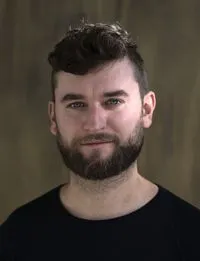- Evaluation of CNN-Based Single-Image Depth Estimation Methods. Proceedings of the European Conference on Computer Vision Workshops (ECCV-WS), Springer International Publishing, 2019, 331-348 more…
- Auxiliary Tasks in Multi-task Learning. arXiv preprint arXiv:1805.06334, 2018 more…
- Deep Convolutional Neural Networks for Semantic Segmentation of Multispectral Sentinel-2 Satellite Imagery: An Open Data Approach to Large-Scale Land Use and Land Cover Classification. 2017 more…
- Towards Seamless Validation of Land Cover Data. International Cartographic Conference, 2017 more…
- Single-Image Super Resolution for Multispectral Remote Sensing Data Using Convolutional Neural Networks. International Archives of the Photogrammetry, Remote Sensing and Spatial Information Sciences (ISPRS) XLI-B3, 2016, 883--890 more…
- Voluminator-Approximating the Volume of 3D Buildings to Overcome Topological Errors. In: AGILE 2015: Geographic Information Science as an Enabler of Smarter Cities and Communities. Springer International Publishing, 2015, 343-362 more…
- iBims-v1. (other entry) more…
Lukas Liebel, M.Sc.
Biography

Lukas Liebel was born in 1989 in Munich, Germany. In June 2017 he received his M.Sc. degree in Geodesy and Geoinformation from the Technical University of Munich (TUM). In his master’s thesis, he developed an approach to land use and land cover classification with neural networks and for the automatic generation of large-scale training data from multi-spectral Sentinel-2 imagery and the OpenStreetMap sources. Since July 2017 he is a Ph.D. student at TUM and working as a research associate at the Chair of Remote Sensing Technology, where he is part of the Computer Vision Research Group. His research is focused on “Multi-task Learning”, a family of machine learning methods. Applications include the automated analysis of earth observation data and visual road scene understanding for autonomous vehicles and advanced driver assistance systems.
Focus and interests
- Specializing in: Multi-task Learning
- Computer Vision, Machine Learning, Deep Learning
- Autonomous Driving (perception, road scene understanding)
- Remote Sensing (earth observation, multi-spectral, optical)
- Automatic Generation of Training Data (i.a., simulators based on video games)
Courses
- Image Understanding - Advanced Methods (Tutorial, Master Geodesy and Geoinformation)
- Image Understanding - Recent Trends in Machine Learning (Project Supervisor, Master Geodesy and Geoinformation)
- Specialization Project Photogrammetry and Remote Sensing (Project Supervisor, Master Geodesy and Geoinformation)
- Geodetic Seminar (Project Supervisor, Master Geodesy and Geoinformation)
Supervised projects and theses
Theses:
- “???”, Katharina Kofend, Master’s Thesis (in collaboration with ???, Hamburg), 2020 (in progress)
- “Self-supervised Learning of Geometry from UAV sequences with Semantic-Aware Depth-Normal Consistency”, Sidi Wu, Master’s Thesis, 2020
- “Semantic Segmentation of Invasive Plants from Remote Sensing Imagery using Convolutional Neural Networks”, Lena Wagner, Master’s Thesis, 2020
- “Evaluation of Single-Image Depth Estimation Methods”, Oliver Geißendörfer, Bachelor’s Thesis, 2018
Specialization Projects:
- “Single-Image Super-Resolution of Multi-spectral Sentinel-2 Imagery” Lena Wagner, Specialization Project Photogrammetry and Remote Sensing, Winter Term 18/19
- “Enhancing CNN-based Single-Image Depth Estimation Methods” Felix Gummel, Specialization Project Photogrammetry and Remote Sensing, Winter Term 18/19 (co-supervised with Tobias Koch)
Geodetic Seminar:
- “Computer Vision with a Passion for Fashion: How Visual Computing steps into Daily Life”, Lena Wagner, Geodetic Seminar, Winter Term 18/19
- “How to Predict the Unpredictable? Estimating Depth from Single Views with Deep Neural Networks”, Baturalp Arisoy, Geodetic Seminar, Winter Term 18/19 ( (co-supervised with Tobias Koch)
- “Google Earth Engine: A Multi-Petabyte Catalog of Geospatial Datasets with Planetary-Scale Analysis Capabilities”, Nazar Suchoronczak, Geodetic Seminar, Winter Term 17/18